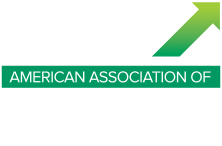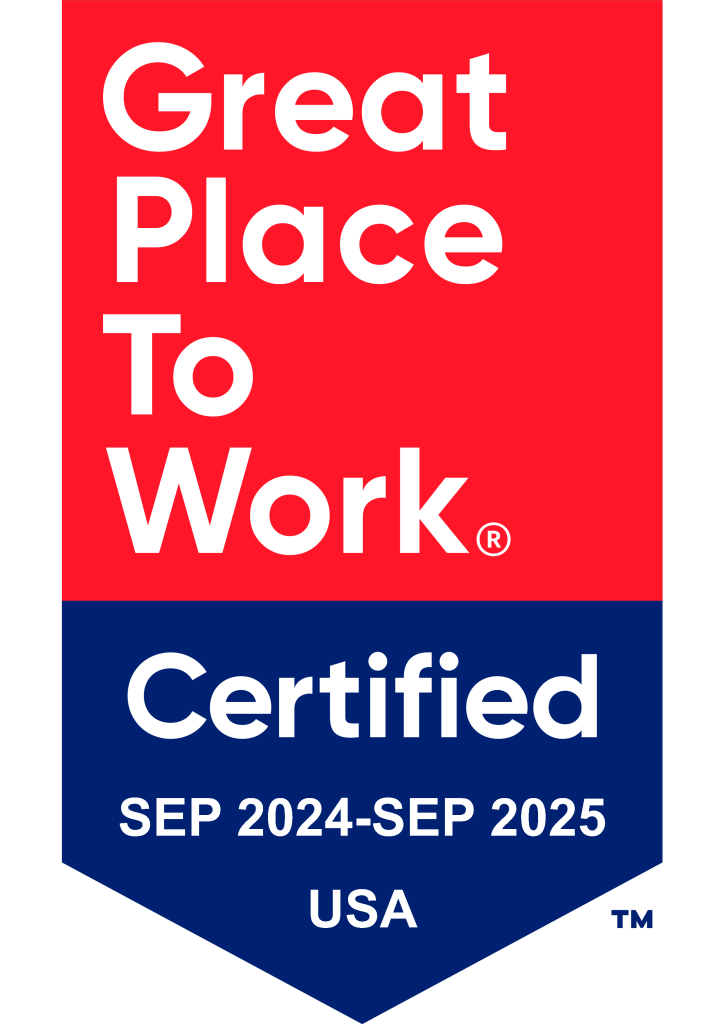Explore expert insights, valuable articles, and inspiring success stories to empower your business. Connect with our Merchant Exchange to access tools for informed decisions.


SUCCESS STORIES
Discover how businesses have transformed with Big Think Capital’s tailored funding solutions and dedicated support. Be inspired by their success stories and learn how to navigate your own path to growth.
Welcome to the Big Think Capital Knowledge Center
At Big Think Capital, we believe that empowering business owners begins with education. That’s why we created the knowledge center—a centralized hub designed to give you access to insights, tools, and expert commentary that fuel smarter decisions and stronger growth. Whether you’re launching a startup or scaling an established business, the knowledge center is here to guide you every step of the way.
What Is the Knowledge Center?
The knowledge center is more than just a blog. It’s a strategic learning resource filled with curated content to help small business owners navigate the world of business financing, funding solutions, economic policy shifts, and cash flow management. This platform brings together expert-written guides, data-driven reports, real success stories, and answers to common questions—all in one place.
Why the Knowledge Center Matters for Small Business Owners
In today’s fast-paced economy, access to accurate, easy-to-understand information is critical. Many entrepreneurs make decisions based on incomplete or outdated knowledge, especially when it comes to business loans, merchant cash advances, or interest rates. That’s where our knowledge center steps in.
We’ve built the knowledge center to give you clarity in an industry that’s often filled with complexity. Our goal is to help you make more informed choices about how, when, and why to fund your business.
Topics Covered in the Knowledge Center
The Big Think Capital knowledge center includes a wide variety of topics organized for convenience and actionability. Key categories include:
Our knowledge center is constantly updated with fresh content written by our team of experts and Funding Specialists.
Using the Knowledge Center to Plan Ahead
Smart businesses don’t just react—they plan. The knowledge center helps you stay proactive by highlighting upcoming trends, risks to watch for, and opportunities to capitalize on. Whether it’s the latest update from the Federal Reserve or a guide to preparing for Q4, our content is crafted to help you stay two steps ahead.
Some of our most-read planning articles include:
Every article in the knowledge center is built to be practical and directly applicable to your day-to-day decision-making.
Meet the Experts Behind the Knowledge Center
The articles in our knowledge center aren’t outsourced or auto-generated—they’re created in partnership with real professionals who understand what small business owners need. Our contributors include:
Each piece of content is reviewed for accuracy and clarity before it gets published. We want the knowledge center to be a place you can trust for honest, high-quality guidance.
Client Education Starts Here
Many of our most successful clients tell us they started their journey in the knowledge center. From learning what a working capital loan actually is, to understanding how merchant cash advances are repaid, this resource helps them start strong.
For example, one client in the restaurant industry shared:
“I had no idea what kind of funding was best for my expansion until I read the restaurant-specific loan breakdown in the knowledge center. It helped me go into the conversation with confidence—and that made all the difference.”
That’s the kind of impact we strive for every day.
Linking Your Learning to Action
Reading is only the first step. The knowledge center is integrated with our services so that every insight leads to action. After reading about invoice factoring, for example, you can immediately speak with a Specialist or submit an application tailored to that product.
Our content includes internal links to key service pages like:
You’ll find relevant CTAs placed naturally so you’re never left wondering, “What’s next?”
Real Success Stories Inside the Knowledge Center
Business owners want to learn from people who’ve been there. That’s why the knowledge center features actual case studies of clients who used Big Think Capital’s services to expand, recover, or pivot. Some examples include:
Each story is linked to the funding product or financial principle it relates to, helping you connect theory to real-world impact.
Fresh Content, Weekly Updates
To keep the knowledge center relevant, we add new content every single week. Our editorial calendar follows industry trends, customer questions, and frequently requested topics. If you want to know what’s coming, subscribe to our newsletter or follow us on LinkedIn.
Popular recent articles include:
FAQs: Using the Knowledge Center
Q: Is the Knowledge Center free to use?
Yes, our entire knowledge center is free and open to the public. No sign-up required.
Q: Can I request specific content topics?
Absolutely. We love when business owners suggest new articles. Email our content team or speak to a Funding Specialist directly.
Q: Are the articles in the Knowledge Center reviewed by experts?
Yes. Every post is reviewed by our internal financial specialists and marketing team for accuracy and clarity.
Let the Knowledge Center Work for You
The knowledge center was designed with one goal in mind: to help business owners make better decisions. Whether you’re looking to learn more about your funding options, understand how economic trends impact your cash flow, or explore ways to optimize your business finances, you’ll find the answers here.
Start exploring today. Read a few articles. Share with your team. Ask questions. Bookmark the knowledge center as your go-to resource for insight, strategy, and smart funding education.
And when you’re ready, connect with a Funding Specialist who can help turn knowledge into action.
How the Knowledge Center Supports Every Stage of Business Growth
Whether you’re just getting started or entering a new phase of expansion, the knowledge center provides support at every stage. Startups often visit our platform to understand funding basics. Established businesses use the knowledge center to compare financing options or prepare for seasonal changes. And those preparing for acquisition or investment rounds turn to our articles to polish financial strategies and documentation.
We understand that no two businesses are alike. That’s why the knowledge center includes a diverse range of tools, checklists, and funding playbooks, all designed to adapt to where you are today—and where you want to be tomorrow.
Funding Product Deep Dives
Not all loans are created equal. The knowledge center helps business owners differentiate between various types of financing. Some of the most popular product comparisons available include:
By breaking down pros, cons, use cases, and qualification standards, our knowledge center empowers you to confidently evaluate what’s best for your goals.
Lending Lingo Demystified
One of the most common challenges small business owners face is decoding the language of lenders. The knowledge center includes a glossary of terms that simplifies industry jargon—making it easier to understand everything from factor rates to collateral requirements.
For example, when you see “daily repayment” or “personal guarantee,” the knowledge center provides definitions, risk breakdowns, and actionable questions to ask your lender before signing any contract.
Business Planning with Confidence
Financial planning is one of the key areas where the knowledge center shines. Articles in this category focus on:
The knowledge center isn’t just about education—it’s about planning smarter. Every article includes downloadable templates or simple frameworks that you can apply right away.
Content Built Around Real Questions
We built our knowledge center based on the questions we hear from business owners every day. If our Funding Specialists receive multiple inquiries about a topic, it often gets turned into a new article or guide. This feedback loop ensures that the knowledge center remains relevant and tailored to real-world needs.
Here are just a few questions that inspired current articles:
If you have a question not yet answered in the knowledge center, let us know—we’re always adding new topics.
Local & Industry-Specific Guidance
Many business funding sites offer generic content. What makes our knowledge center different is the inclusion of localized and industry-specific advice. For example:
The knowledge center helps business owners avoid one-size-fits-all answers and instead focus on practical, contextual solutions.
The Knowledge Center as a Training Tool
Some clients use the knowledge center to onboard their finance managers, operations directors, or sales leads. Why? Because the content is not only educational—it’s easy to digest.
Topics like “How to Read a Loan Agreement” or “Funding Do’s and Don’ts” can be essential for aligning your team around smart, strategic financing practices.
In fact, several partners have told us they keep the knowledge center bookmarked as a daily reference guide.
Interactive Tools & Calculators
The next evolution of our knowledge center includes interactive tools, such as:
These tools are designed to make funding decisions more precise. By integrating data into your planning process, you can better forecast repayment schedules, interest impact, and expected profit lift from each investment.
Community Spotlights and Peer Advice
Business owners often learn best from peers. That’s why the knowledge center features client interviews, roundtables, and community Q&As. These highlight creative solutions, vendor partnerships, and funding strategies used by actual Big Think Capital clients.
One bakery owner shared how a seasonal cash advance enabled her to double Thanksgiving orders. A contractor discussed how switching from credit cards to a short-term loan cut costs and simplified his monthly budget.
These stories give life to the advice inside the knowledge center and help you visualize how different funding paths might look in practice.
Your Feedback Shapes the Knowledge Center
The knowledge center is not static. It grows alongside our clients. We constantly review performance metrics, reader behavior, and client feedback to update or expand content.
If a topic is out of date due to regulatory changes, inflation shifts, or new lending rules, it’s updated promptly. This commitment to accuracy makes the knowledge center a trustworthy source even during volatile market conditions.
How to Get the Most Out of the Knowledge Center
To fully leverage the knowledge center, we recommend the following:
An Investment in Education Pays the Highest Dividends
That old saying holds true—especially in business finance. The better informed you are, the better decisions you make. And those decisions compound over time into healthier businesses, smoother operations, and bigger returns.
At Big Think Capital, we’re committed to giving you the knowledge and the tools to reach your goals. The knowledge center is one of the most powerful ways we fulfill that promise.
Big Think Capital’s Knowledge Center: Built for Small Business Success
At Big Think Capital, our goal is to support small business owners not only with funding—but with the information they need to grow, adapt, and thrive. That’s why the knowledge center remains a cornerstone of our platform. This final section explores the broader vision for the knowledge center and how it’s positioned to evolve with the needs of entrepreneurs nationwide.
Funding Doesn’t End at the Application—It Starts With Learning
Too often, funding companies focus entirely on the transaction: submit an application, receive funds, move on. We believe funding is only effective when it’s paired with education. The knowledge center was created to bridge that gap, offering a place where business owners can get answers before making big decisions.
Want to understand the true cost of short-term capital? The knowledge base has guides on repayment structures, APR calculations, and hidden fees to watch for. Curious about how loan stacking could impact your cash flow? There’s a full breakdown in the knowledge base explaining the risks and alternatives.
When clients come to us with questions, we don’t just give them answers—we point them to the content in our knowledge base that will continue to serve them for years to come.
A Resource You Can Trust in Changing Times
In times of economic uncertainty, information overload is common—but credible insight is hard to find. The knowledge base cuts through noise by focusing on evidence-based, actionable content vetted by real financial professionals.
During the pandemic recovery period, for example, the knowledge base was updated weekly with articles covering PPP loan forgiveness, emergency grants, and state-by-state small business programs. When inflation hit a 40-year high, we expanded our coverage of interest rate risk, cost-cutting strategies, and alternative lending models.
No matter the challenge, the knowledge base is a constant—ready with the information that matters most.
Empowering Non-Traditional Borrowers
Not every entrepreneur fits the mold of traditional finance. Our knowledge base is built to support those who’ve been underserved by conventional banking: startups with limited credit history, solopreneurs, seasonal businesses, and immigrant-owned companies.
We offer articles like:
By making these topics visible and accessible, the knowledge base encourages more business owners to explore opportunities they might have previously thought were out of reach.
From Education to Empowerment
There’s a difference between knowing your options and confidently choosing the best one. That’s where the knowledge base becomes a true asset. It doesn’t just list funding types—it explains when, why, and how to use them.
For example, a business owner reading about invoice factoring in the knowledge base will also learn:
This level of depth helps you avoid costly mistakes and take control of your financial strategy.
Integrating the knowledge base Into Your Growth Plan
More and more businesses are integrating the knowledge base into their long-term growth strategy. It serves as:
Think of the knowledge base as your financial coach in article form. Whether you access it weekly or monthly, you’ll always walk away with something useful.
More Than Articles: What’s Coming Next
We’re just getting started. In the next year, the knowledge base will expand to include:
All of these upgrades are designed to make the knowledge base more interactive, more personalized, and more valuable to your journey.
Final Thoughts: Why the knowledge base Exists
At its core, the knowledge base exists to remove barriers. We want to eliminate confusion, reduce stress, and build financial literacy across all industries and regions.
There’s power in knowing what’s possible. And when that knowledge is paired with funding, business owners can take bold steps with clarity and purpose. That’s why we’re proud to offer a knowledge base that reflects not just our expertise—but our values.
Thank you for being a part of our community. Whether this is your first time exploring the knowledge base, or you’ve been learning with us for months, we’re honored to support your growth.
And if there’s ever a topic you’d like us to cover, let us know. The knowledge base is built for you—your challenges, your questions, your goals.
Explore. Learn. Grow. The knowledge base is here whenever you need it.

Big Think Capital is a leading financial marketplace, offering business borrowers a straightforward and transparent funding process. Supported by comprehensive resources to help them fully understand their financing options, we have funded over $1 billion and assisted more than 25,000 business owners. Committed to the highest standards of business ethics, we ensure a trustworthy and seamless experience for every client.




© 2025 Big Think Capital, All Rights Reserved.
Disclaimer: The above information is provided as a guideline. Some loan conditions may fall outside of these parameters. We recommend that you speak with one of our advisors before taking any course of action based on this information.
Gain expert insights and exclusive updates on financial solutions and products tailored for your business.
